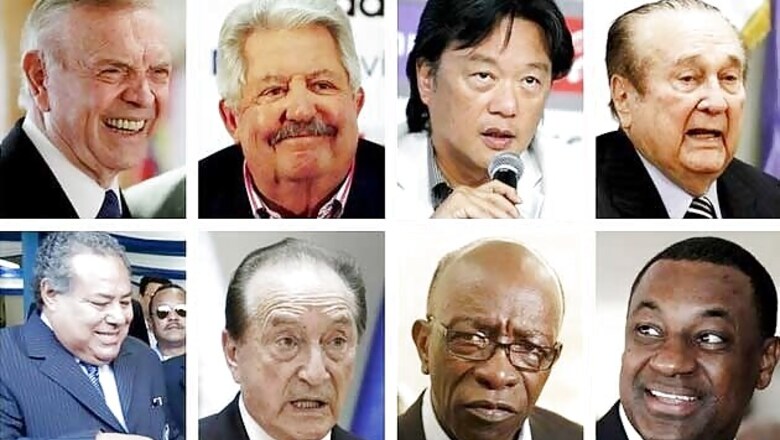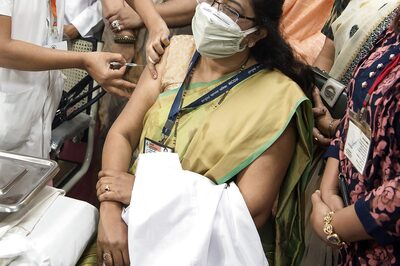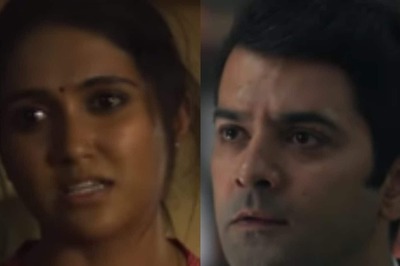
views
Swiss authorities have begun questioning the soccer officials who were arrested in Zurich in May in a corruption scandal and are facing extradition to the United States, legal sources said.
Those questioned included Jose Maria Marin, a former president of the Brazilian Football Confederation (CBF), one of the sources said. The final decisions are expected in August.
A second source said: "There was a hearing but the client did not yet make up his mind. We are in touch with the US lawyer."
The Swiss Federal Office of Justice (FOJ) confirmed that the hearings were underway but did not give further details.
FIFA was thrown into turmoil when 14 sports marketing executives and soccer officials, including several from soccer's governing body were indicted in the United States in late May on bribery, money laundering and wire fraud charges.
Seven of those accused were arrested by Swiss police in a dawn raid on a luxury Zurich hotel two days before the FIFA Congress where Sepp Blatter was re-elected for a fifth term as president.
"Marin and others were questioned this week whether they would agree or not to a simplified extradition," a Swiss legal source told Reuters. "The result is unknown."
For extradition, a crime must be punishable under Swiss law, so defence teams were studying options. "Dual criminality must be met," he said.
As well as Marin, they included Jeffrey Webb, from the Cayman Islands, and Eugenio Figueredo, a former president of the South American Football Confederation and Uruguayan Football Association, who were FIFA vice-presidents at the time.
The others are Eduardo Li, Julio Rocha, Costas Takkas and Rafael Esquivel.
Webb has agreed to be extradited, a source familiar with the matter has said, while Figueredo has already had a request for bail on health grounds rejected.
Zurich police question each defendant at the hearing, to which they can wear regular clothes, one source said. The defendants are scattered in at least four prisons in Zurich canton, he added.
At the hearing, defendants are asked whether they are the person identified in the extradition request, how their health is, whether they accept a translator and whether they agree to extradition, by a simple yes or no.
After a hearing, defence lawyers have 14 days to submit a brief to the FOJ. They may also request a further extension of up to 14 days.
The FOJ will then render decisions on extraditions.
"It will definitely be August. There will be no final decisions before August," the source said.
Defendants may lodge appeals against extradition orders with the Swiss Federal Criminal court in Bellinzona. This is a "tactical question" which would buy them time, possibly while negotiating a deal with U.S. prosecutors.




















Comments
0 comment